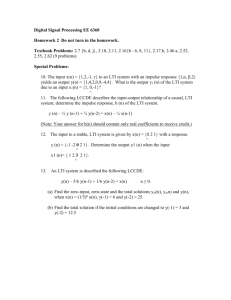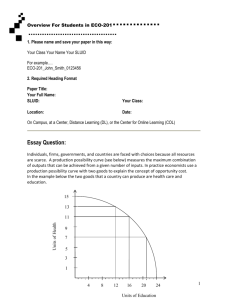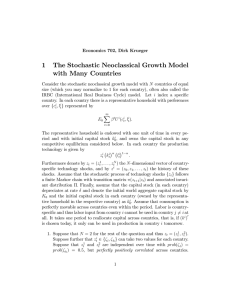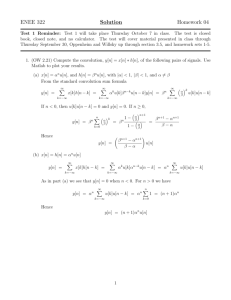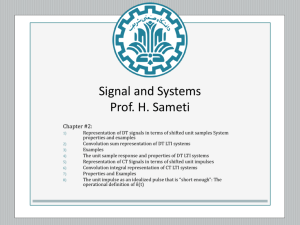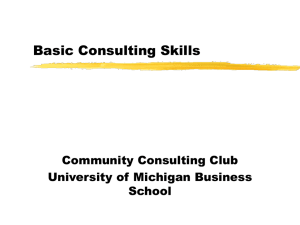Servant Leadership
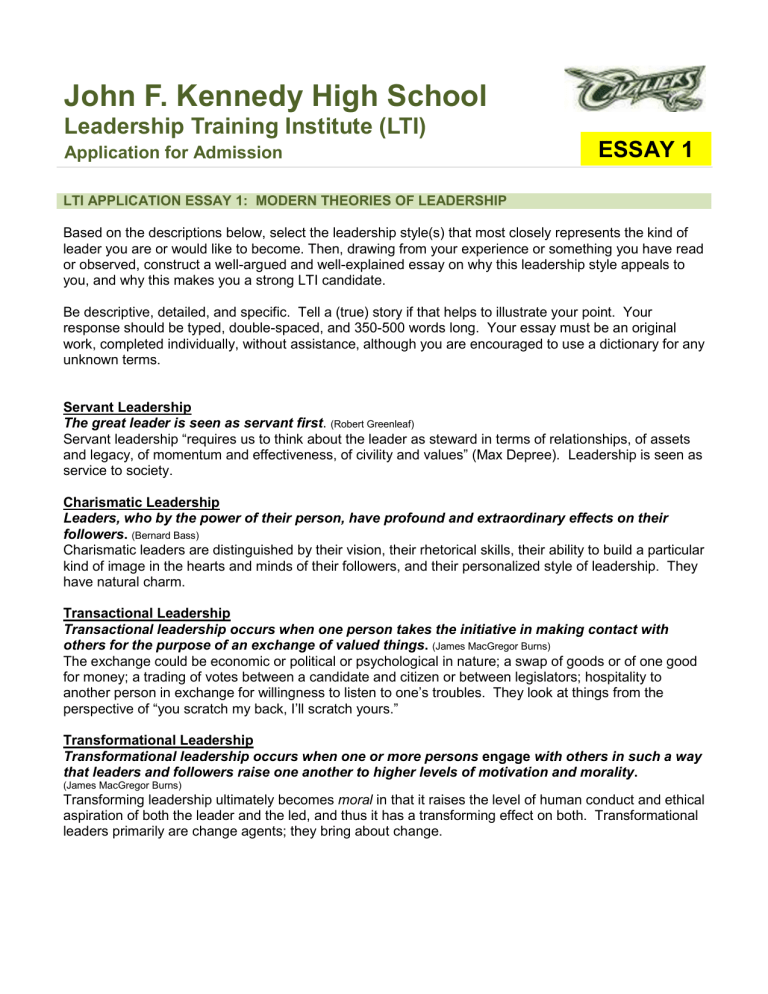
John F. Kennedy High School
Leadership Training Institute (LTI)
Application for Admission
ESSAY 1
LTI APPLICATION ESSAY 1: MODERN THEORIES OF LEADERSHIP
Based on the descriptions below, select the leadership style(s) that most closely represents the kind of leader you are or would like to become. Then, drawing from your experience or something you have read or observed, construct a well-argued and well-explained essay on why this leadership style appeals to you, and why this makes you a strong LTI candidate.
Be descriptive, detailed, and specific. Tell a (true) story if that helps to illustrate your point. Your response should be typed, double-spaced, and 350-500 words long. Your essay must be an original work, completed individually, without assistance, although you are encouraged to use a dictionary for any unknown terms.
Servant Leadership
The great leader is seen as servant first .
(Robert Greenleaf)
Servant leadership “requires us to think about the leader as steward in terms of relationships, of assets and legacy, of momentum and effectiveness, of civility and values” (Max Depree). Leadership is seen as service to society.
Charismatic Leadership
Leaders, who by the power of their person, have profound and extraordinary effects on their
followers.
(Bernard Bass)
Charismatic leaders are distinguished by their vision, their rhetorical skills, their ability to build a particular kind of image in the hearts and minds of their followers, and their personalized style of leadership. They have natural charm.
Transactional Leadership
Transactional leadership occurs when one person takes the initiative in making contact with
others for the purpose of an exchange of valued things.
(James MacGregor Burns)
The exchange could be economic or political or psychological in nature; a swap of goods or of one good for money; a trading of votes between a candidate and citizen or between legislators; hospitality to another person in exchange for willingness to listen to one’s troubles. They look at things from the perspective of “you scratch my back, I’ll scratch yours.”
Transformational Leadership
Transformational leadership occurs when one or more persons engage with others in such a way
that leaders and followers raise one another to higher levels of motivation and morality.
(James MacGregor Burns)
Transforming leadership ultimately becomes moral in that it raises the level of human conduct and ethical aspiration of both the leader and the led, and thus it has a transforming effect on both. Transformational leaders primarily are change agents; they bring about change.
John F. Kennedy High School
Leadership Training Institute (LTI)
Application for Admission
ESSAY 2
LTI APPLICATION ESSAY 2: PERSONAL REFLECTION
Here is a partial list of difficult things to do. Read it and reflect on it. Select the one item that represents something you are still struggling with or have had great success in overcoming. Then, drawing from your own personal experience, construct a well-argued and well-explained essay that allows the reader to clearly see why that was/is difficult for you and how you overcame it or are trying to overcome it. Be sure to identify which difficult thing you are addressing (for example, “To Break a Bad Habit”), and why facing this issue makes you a strong LTI candidate.
Be descriptive, detailed, and specific. Tell a (true) story if that helps to illustrate your point. Your response should be typed, double-spaced, and 350-500 words long. Your essay must be an original work, completed individually, without assistance, although you are encouraged to use a dictionary for any unknown terms.
To break a bad habit
To love an enemy
To think logically
To admit ignorance
To withhold judgment
To persevere without haste
To wait without impatience
To suffer without complaint
To know when to keep silent
To be indifferent to ridicule
To concentrate in the midst of strife
To endure hatred without resentment
To fraternize without losing individuality
To serve without compensation, commendation, recognition
-Anonymous






